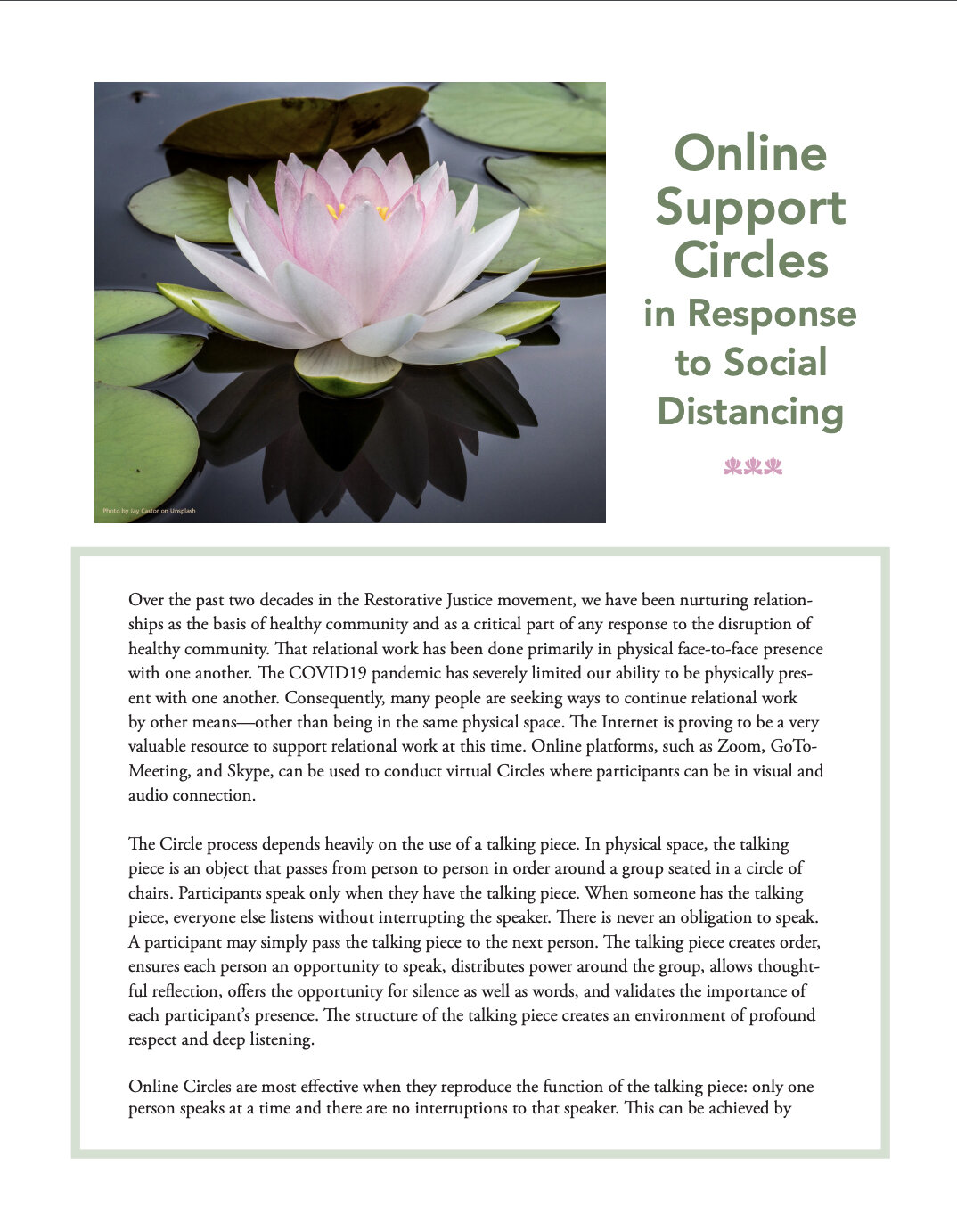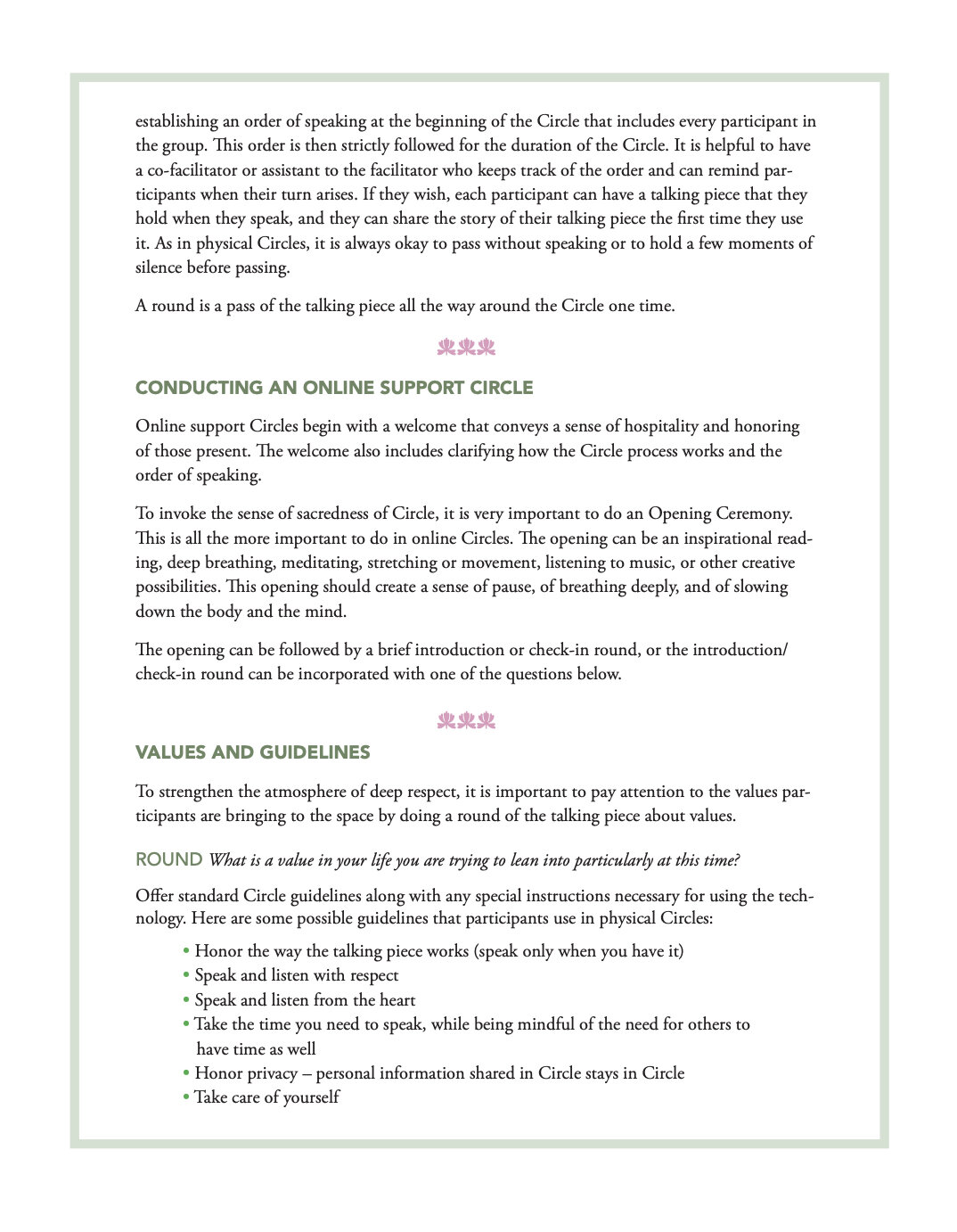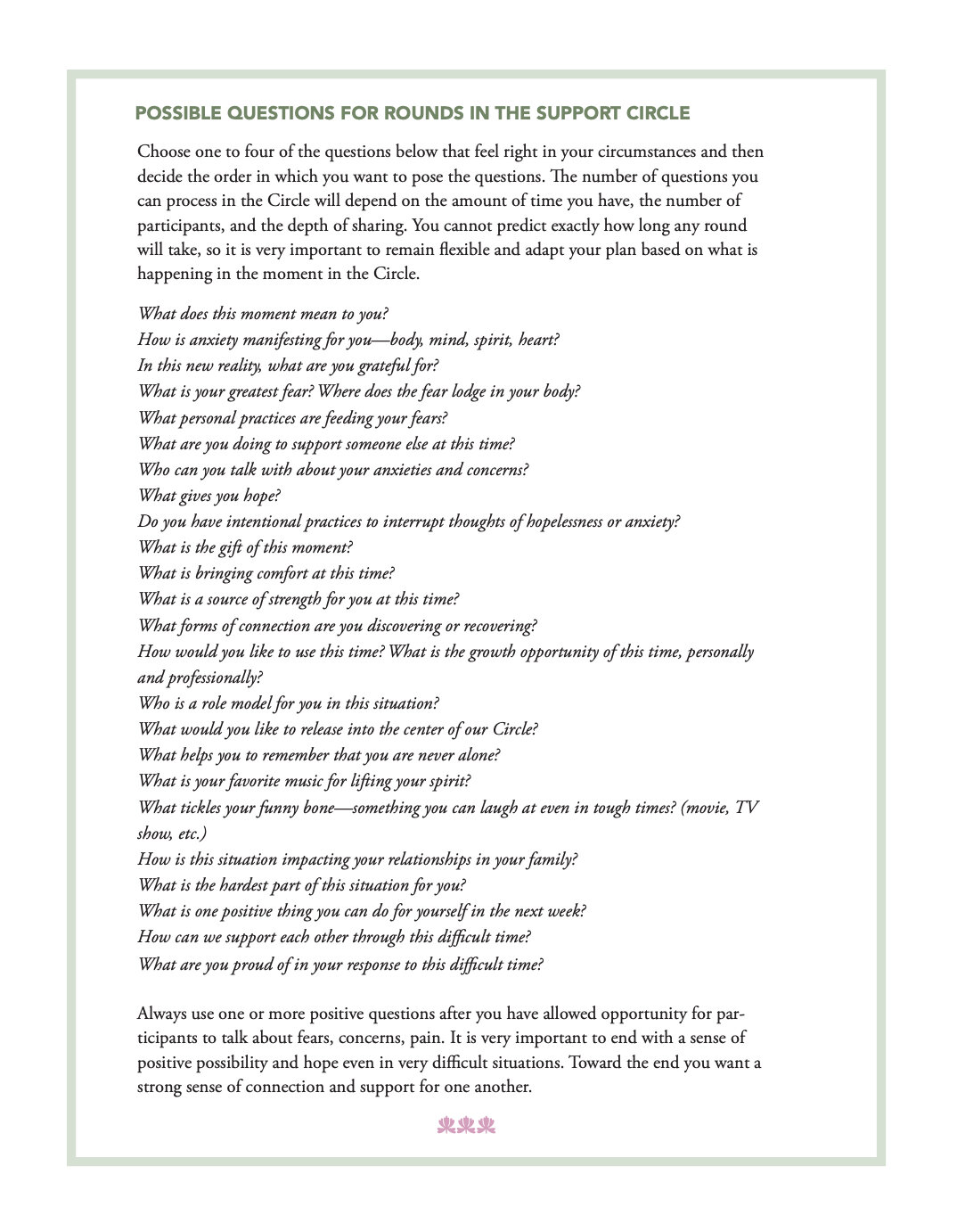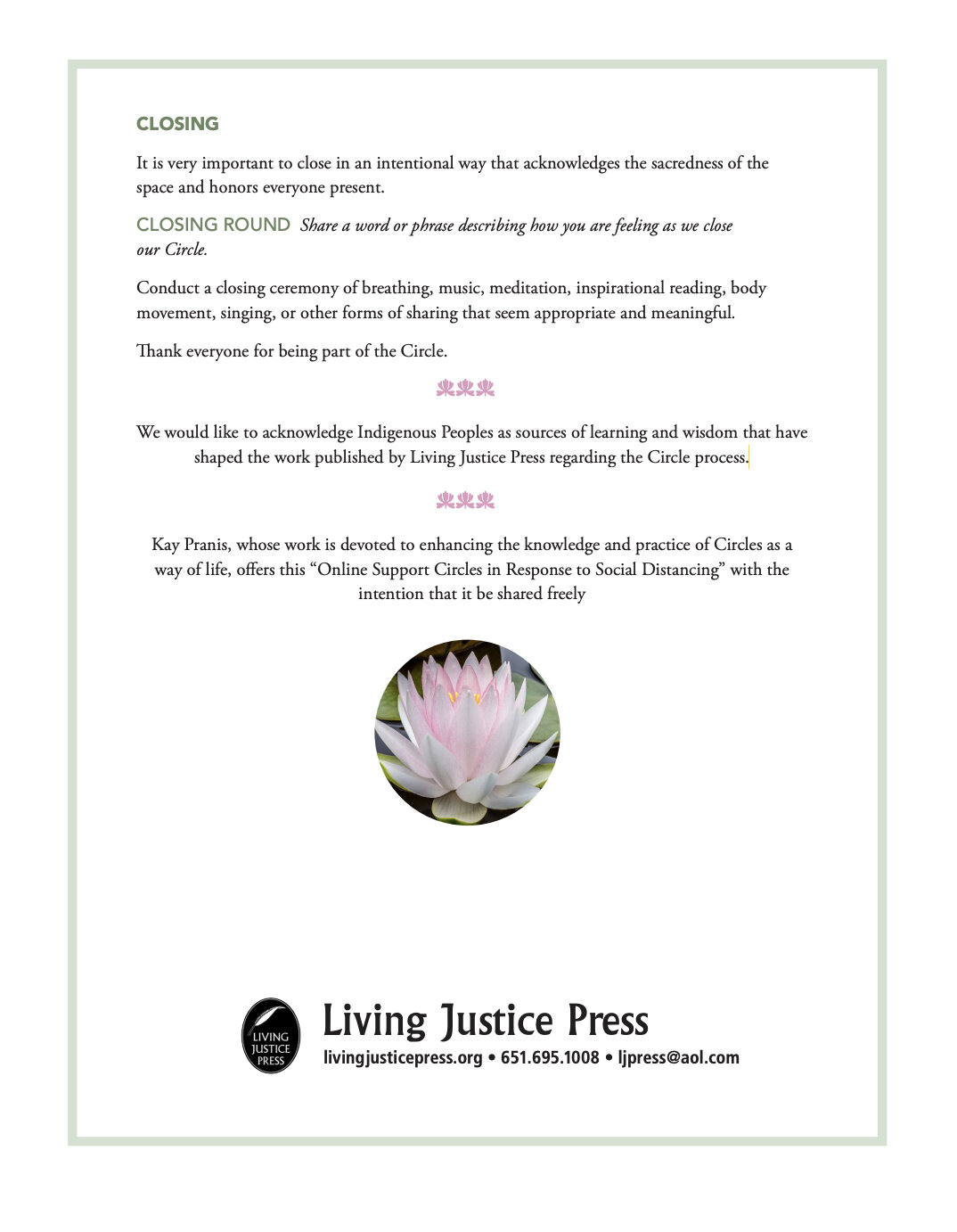As part of the Southwest Region’s Christian Youth Leadership Seminar 2020 Digital Toolkit, DPF was asked to create a short video on “Facilitating Small Group Conversations about Justice.” Tiffany Curtis, Brian Frederick-Gray, Krista Johnson Weicksel, and Jennifer Williams met in a Zoom Room and recorded a panel discussion on the topic.
Below you’ll find the 15-minute video they produced for the CYLS Digital Toolkit along with an “Extended Cut” of the entire conversation PLUS as a whole series of links to resource you up as a small group facilitator.
Digital Toolkit, 15-minute Facilitation Video
Extended Cut of the Facilitation Video
The Extended Cut of the Panel Discussion from Disciples Peace Fellowship on Facilitating Small Group Conversations about Justice. This longer version of our 15-minute Facilitation Guide Video features discussions of adapting the practices for virtual spaces and more in depth conversations about each topic.
Additional Resources
“Unlocking the Magic of Facilitation” by Sam Killerman and Meg Bolger
This book (reference by Tiffany in the video) introduces and explains 11 key concepts every facilitator should know, that most facilitators don't even know they should know. They are sometimes-tiny things that show up huge in facilitation. It's a book for facilitators of all stripes, goals, backgrounds, and settings – and the digestible, enjoyable, actionable lessons would benefit anyone who is responsible for engaging a group of people in learning.
The Program on Intergroup Relations at the University of Michigan
Key themes of the IGR Method (reference by Jennifer in the video) include: Stage 1: Creating a Shared Meaning of Dialogue; Stage 2: Identity, Social Relations, and Conflict; Stage 3: Issues of Social Justice / Hot Topics; Stage 4: Alliances and Other Next Steps.
Emergent Strategy by adrienne maree brown
Inspired by Octavia Butler's explorations of our human relationship to change, Emergent Strategy is radical self-help, society-help, and planet-help designed to shape the futures we want to live. Change is constant. The world is in a continual state of flux. It is a stream of ever-mutating, emergent patterns. Rather than steel ourselves against such change, this book invites us to feel, map, assess, and learn from the swirling patterns around us in order to better understand and influence them as they happen. Tiffany mentioned Emergent Strategy in the video because the end of book is filled facilitation ideas.
adrienne maree brown’s blog is a most follow as well: adriennemareebrown.net
Visions Guidelines
Referenced in the video by Tiffany, VISIONS’ theory challenges all participants to look at the pervasive impact of unconscious assumptions, biases, and power imbalances on their personal behavior as well as their organization’s behavior. It clearly defines the traps and strategies used, often unconsciously, to erect barriers to inclusion at all levels—personal, interpersonal, institutional and cultural. These guidelines promote openness and prevent feelings of guilt or shame, allowing for learning and accountability.
Covenant of Presence Guidelines
Referenced in the video by both Jennifer and Tiffany, these conversation guidelines are based on a set of touchstones first written by the Center for Courage and Renewal. They include: 1) Be fully present, extending and presuming welcome; 2) Listen Generously; 3) Author Your Story; 4) We Come as Equals; 5) It is Never “Share or Die”; 6) No Fixing; 7) Suspend Judgment; 8) Turn to Wonder.
The Little Book of Cool Tools for Hot Topics by Ron Kraybill and Evelyn Wright
This quick-reading 100-page book is a how-to collection of tools that have proven to be highly effective for facilitation of group conversation about difficult topics. The book shows how to help people hear each other when they feel like shouting; how to focus on the issues at stake rather than having a war of personalities; how to employ actual practices for better understanding (interviews, small-group discussions, role-reversal presentations); and how to move a group toward making a decision that all can honestly support.
“Online Support Circles in Response to Social Distancing” from Living Justice Press
This short PDF from Kay Pranis offers easy, pragmatic steps to adapt the Circle Process for an online format or virtual small group conversation.



